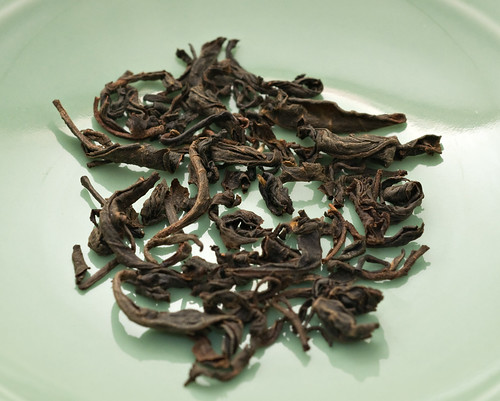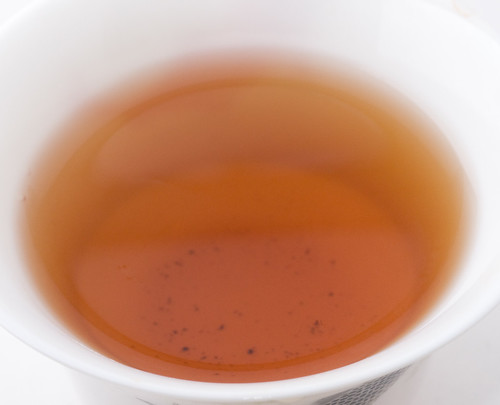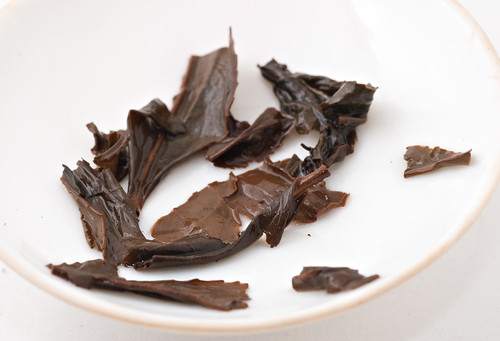This is fairly pricey like most Korean teas, apparently due to rarity with most being consumed inside Korea.
The leaves are dark, small, twisted, with toasty and fruity odors. When added to the prewarmed gaiwan, the odor is stronger, mostly fruity and tart.

Used 2.5 grams of tea for a 75mL or 2.5 oz porcelain gaiwan, keeping to about 1g tea per ounce.
The first 30 second infusion with water several minutes off the boil (probably about 180 degrees) yields an amber infusion, tasted like dilute black tea--touch of fruit, bit of toasty, but very little of the floral and earthy notes I expect from my chinese oolongs.
2nd infusion at 170 degrees (thought it was a bit warmer, surprised when it was so cool in the cup), also about 30 seconds, again tastes strongly of....well...black tea. A little fruity, very tea-like, a little hint of caramel.

For the 4th infusion, I put water just off the boil for 20 seconds, and a little more sweetness comes out. It reminds me a bit of the Yunnan Oriental Beauty I got from Yunnan Sourcing: tastes strongly oxidized, like a black tea, but without any of the bitterness that makes most of them intolerable to me.
The leaves are broken, curled, dark after infusion, and again, has a strong tea scent. ('Tea scent' here is code for smells like lipton, but that seems like a bad word to use describing a pleasant mild tea.)

It is easy and pleasant, but not as special as the price.